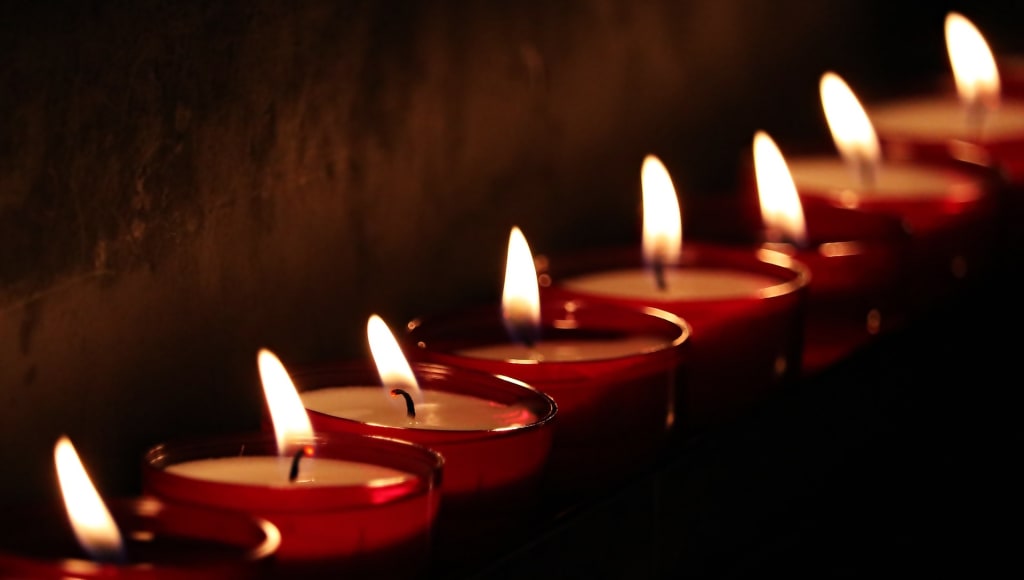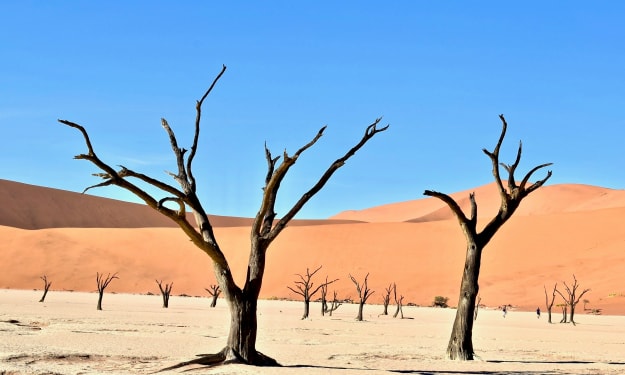
There are some facts that should not be true. The meat should not reason. We should not perish. But there you have it. We shouldn't be able to create consciousness—a conscious mind capable of changing the world—through sex. But there you have it. Observing these details is poetic. They are so bizarre that just thinking about them for a long time messes up your regular foolish head and allows you to breathe. Poetry accomplishes this. It's also what religion does, but religion uses these impossible truths as a license to invent, which many of us no longer find appealing.
However, religion got a lot of things right when it came to holidays and ritual readings. For several decades, I've been a scholar of the history of doubt and disbelief, and I've had the opportunity to listen to people talk about religion and its loss or lack. For one thing, I've been surprised to learn how many of us who are happy to be atheists still celebrate religious holidays—and how many of us feel conflicted about it.
The spring holidays (Easter, Passover, and Holi) have arrived, and they're worth considering in poetic terms. Many of us who do not believe in God or organized religion celebrate simply to make other people happy, and we enjoy being a part of the festivities. We can put up with more religious talk if it comes with an outsider's melancholy.
I'm not suggesting that anyone add more holidays or rituals to what they already do; I'm simply suggesting that we add a poem and find a way to have a deeper experience with what we're doing, and to notice that we're doing it together.
Of course, for many people, the supernatural aspects of religion are extremely important, but I believe poetry serves the same purpose. I know it's not an exact match but bear with me.
Following my first big Doubt talk, a very pregnant couple asked if they could have a religious ceremony for the baby, as their parents had hoped, despite the fact that they are atheists. They seemed pleased when they described what the grandparents wanted, and they lit up when they said the food would be delicious and that they'd been to these events their entire lives. But they didn't want to offend their family's faith by faking it, nor did they want to betray their true belief in science and reality in a way that they might regret as cowardice or just a bad note.
I hadn't anticipated this type of question, so I gave a historical explanation of how ritual is reinterpreted in different times and places to match what people believe and want. Yes, I said. I told them that I participate in religious rituals and holidays on a poetic level and find them to be a delightful part of life. I shouted after them as they walked away that they should add some poetry so that they would be lifted up at the ceremony.
I'm sure they understood what I meant because poetry is common at any ritual and has come to be expected at weddings and funerals. I continued to yell because some Walt Whitman lines came to mind. I added that there's a famous passage in Leaves of Grass where he asks himself, with great incisiveness, what the point of life is, really raking life and himself over the coals in the question, and then he writes:
Answer: That you are here—that life and identity exist,/that the powerful play continues, and that you may contribute a verse.
It was a tense moment in the room. Today, I'd suggest a poem about babies for the type of event we were discussing, but as it happened, it struck a lot of people in the room quietly, and they wanted a copy, and they wanted to know where they could find it.
The small piece of poetry invites us to see ourselves as part of a larger human story. It reminds us that the fact that we exist is already quite remarkable. The "and identity" always gets to me. He's reminding us of the improbability of our personalities, of our wild inner lives, and it catches me when I'm skidding.
Why did I exclaim that? I hadn't had children yet, but I'd been to family ceremonies for babies where someone read a poem and the entire room changed, times when the new mother heard the words and looked encouraged and shining, times when parenthood was exalted as so adventurous and inventive and wondrous that the entire party was moved to join the human fray, to ride the roller-coaster of this experience and do whatever it takes to have that kind of joy. I really wanted those two to get that lift. It was a revelation to me about what people want and need, about what is bothering us, and what might help us solve it.
I've come to realize how prophetic Whitman was in that epiphany, especially the line "you may contribute a verse." That is essentially my message. You have the right to have your own genuine encounter with whatever you inherited from your religion and wish to keep. Nothing has to be made up from scratch. We have a rich ritual and deep poetry. We just need to put them together.
That also applies to holidays. For a holiday, select a poem from any anthology of world poetry. Return to the same poem the following year, the following time. Which poem is it? Religious holidays are often "about family" for us, but if you look closely, holidays often have a deeper theme, such as the forgiveness of sins. Or a community attempting to rebirth with the arrival of spring. We can consider holidays to be poetically doing what some say they do supernaturally, and then choose a poem to match that feeling or idea. And in this, we can feel connected to one another.
Religion teaches us that we require repetition. We need repetition because words that can change our perspective require us to remind ourselves over and over. We need repetition because returning to complex ideas helps us understand them. And we need repetition because it helps us see how we've changed and how we've remained the same over time, just as visiting a city we once lived in can help us see ourselves more clearly and know ourselves better over time. Consider the poems we hear over and over at weddings, for example, as cultural liturgy rather than cliches. We can all have a say in the matter by voting on our purchases.
Listening to the people who came to my talks, I discovered that many of us are fine without a caring God, heaven, gods, karma, or rebirth. But it's also worth noting what else we lost when we abandoned religion. Many nonbelievers struggle with their losses. Religions provide rituals and recitations to help people confirm their vows, meditate, make decisions, deal with shame, and cope with death. They provide texts for silent meditation and schedule quiet introspection time in the communal calendar. They make us sing, dance, swim, fast, and feast, and they remind us to be grateful. People reinvent everything, or they miss it and feel locked out, certain that they can't touch the ritual unless they fully believe in it.
A historical surprise I kept getting was how common it is for people to continue practicing the rituals they were taught while shifting the details to personal taste and utility. They don't drop them because they are important. The lights we hang at the same time are not insignificant. Chocolate bunnies and chocolate-covered matzoh, colored eggs, and colors are thrown together—these are not insignificant. They have the ability to bring broken communities together.
In today's tense political environment, it seems reasonable to wonder what we are passing down to the next generation. Poetry brings us empathy, first and foremost because of the intimacy of the poetic voice, and secondly because it allows us to show our true selves rather than flaunt them. Poetry draws us in and whispers of the human experience's paradoxes, that we feel so permanent and our problems so significant, and yet we are well aware of death and how things fall apart.
Many of us believe that God or another unseen personality is the one demanding the rituals at holidays, weddings, and the like—so there's no reason to do them if you don't believe. When we are forced to participate, we are uneasy because all of our strange behaviors seem to imply that we believe in nonsense. But what if it is the ritual that helps people? Religious rituals can help participants navigate life's major transitions.
Whether it's a wedding or a funeral, rituals lead us step by step to the realization that something significant has occurred and that things will never be the same again. In a crisis, for example, rituals can rally our support at a time when it would never occur to us to throw a party.
Surely, at the big moments, some of the words spoken should be something you believe, a visit with the poetic that leaves you less shaken and much stirred. Aside from that, the Interfaithless should remember that the rest of us are out here, trying to be awake to the poetry of all this madness and beauty. I laughed when I coined the term Interfaithless, but it stuck because there are many of us who believe in the interconnectedness of all of us.
Many non-religious people enjoy holidays, perhaps especially as a time when families and friends travel to be together. Rituals necessitate effort as well, frequently in the form of dessert decoration and mood demands. Perhaps just read the poem and do whatever part of the holiday comes naturally to you.
Holidays benefit everyone, whether they believe it or not. Rituals inform the body of the time of year and suggest a focusing idea for all of us, such as renewal, abstinence, forgiveness, or indulgence. They give us something to look forward to, such as special drinks, snacks, and feasts that are only available once a year. We need wonder in our lives, and holidays provide it. They create opportunities to feel the awe of it all.
In many societies, we live mostly without the benefits that religion and other rituals provide. What we have lost and require is not supernatural. The world's enchantment was always poetic, always real. Consciousness is as enchanted as the virgin birth. The inspiration we require stems from noticing the strange beauty of the real. We may rely on traditions in these pivotal moments of our lives because they are ready-made and expected. I believe we are correct in assuming that such occasions necessitate a ceremony.
A small shift in how we think about rituals and the poetry of our lives can provide a significant amount of support. And it isn't just about us as individuals. It's about who we are as a community, so we can feel good about ourselves on a regular basis, not just after a disaster. And it's about deciding who the next generation will be. Poetry has the power to save the world.
The Interfaithless can take a holiday break to marvel at the spectacular absurdity of being ambitious mortals failing, loving, trying, dying, and living together. In the human corner of this rather extraordinary universe, a little intention goes a long way.
About the Creator
Enjoyed the story? Support the Creator.
Subscribe for free to receive all their stories in your feed. You could also pledge your support or give them a one-off tip, letting them know you appreciate their work.





Comments
There are no comments for this story
Be the first to respond and start the conversation.